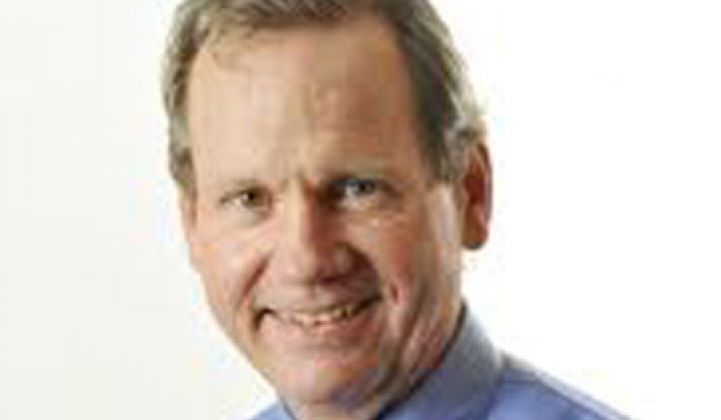In his January 2011 State of the Union address, Barack Obama identified our generation’s “Sputnik” moment, issuing a challenge to American scientists, technologists and engineers to lead the world in clean energy technology and innovation. The recent announcement aimed at improving energy efficiency in commercial buildings is progress -- but we still have a long way to go to protect our energy future.
The simple truth is that energy policies are at a standstill. We can debate the particulars of energy policy and CO2 emissions forever, but the fact is, doing nothing cannot be an option.
At the same time, nothing meaningful is happening when it comes to businesses regulating themselves. We as leaders are in danger of being the first generation to leave this world worse than the way we found it -- an unacceptable and embarrassing truth. We need to act, we need to act collectively, and we need to act now.
While we sit still, look at what’s happening around the world. Energy demand is booming. In mature countries like the U.S., this demand is fueled by the need to power our computers, BlackBerries and the benefits that our new digital lifestyles provide. In new economies like China and India, this demand fuels rapid growth. In addition, there are 1.6 billion people in the world today without any electricity, and to them, energy means progress.
Simultaneously, traditional energy leaders like Japan and the Scandinavian countries, and now China, India and Mexico, are voluntarily implementing energy efficiency policies and programs because they make economic sense. While this happens, America is letting other countries develop technologies that solve the global energy dilemma better, faster and cheaper than we can. In 2010, China installed three times as much wind power capacity as the U.S., making it the world’s largest wind energy market, and putting the U.S. yet another step behind the transition into a cleaner, more efficient and more secure future. If a prevailing technology comes to fruition, we’ll find ourselves dependent on another country’s innovation for our energy, similar to our current dependence on the Middle East for oil.
So, the question remains: how do we address this problem?
The answer does not lie simply in becoming entirely independent (i.e., generating all of the energy needed for the U.S within the U.S.), but rather in changing the way we receive, consume and manage our resources -- and getting the American public to understand the issues.
Through my travels, I’ve met hundreds of people who focus on this problem every day. They all seem to have different views on what it will take to secure our energy future, and in turn, the economies, industries and commodities it will support.
Many people, including myself, believe that we absolutely need strong collaboration from government, business and academia to solve this.
We need federal and state governments to step up their regulations that mandate and encourage a smarter, more energy efficient nation.
We need CEOs of business to understand their energy usage and put standards and requirements in place to reduce consumption. As business leaders, we have standards in place to ensure the quality of our products and the safety of our employees. We can and must devise similar standards and requirements for our respective companies' energy usage, putting sustainable energy management programs in place and taking responsibility for them on a day-to-day basis. It’s good for the bottom line and good for the environment.
We need academia to start to educate and train the future workforce that will make this a reality. There are far too few programs in place at universities that give our future employees the skills and competencies they need. For example, these are the kind of skills that can help a business analyze a building’s energy use, understand the dynamics of a building and show the facility manager how they can save 30 percent or more on their energy bill.
We also need to stop ignoring one of the simplest solutions available to us today -- so let’s be smarter about the way we use and conserve energy, which could enable us to effectively generate energy for tomorrow by saving it today. Energy efficiency is the world’s cleanest, quickest and cheapest energy resource. The technologies and services are proven and commercially available today.
Our nation became a superpower by beating other countries in developing technology and fostering innovation, and responding rapidly and appropriately during times of crisis. We are in an energy crisis. We cannot be neutral or indecisive. Our next step needs to be action. And any action needs to include the one issue that everyone supports -- energy efficiency. This will be the defining factor in our country’s collective success -- or failure -- in securing our energy future.
***
Christopher Curtis is the president and CEO of Schneider Electric North America



